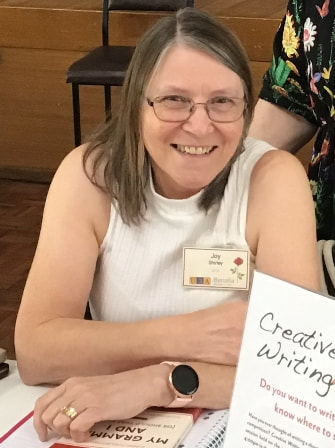The discussion this month was around the importance of grabbing the reader’s attention at the start of the story. The first sentence could start at a point of action or moment of change, introduce the main character/s or pose questions that hook the reader. The back story, stereotypical openings, information dumps and long descriptions should be avoided at the start. Anything important can be sprinkled later throughout the story.
Our challenge
After talking about the use of words in the February class, the challenge this month was a follow up. The class were given a list of words with three possible meanings for each word. Some of the words were familiar, others were quite new.
For example:
FULSOME: Fat, satisfied, flattering
INSOLATION: Sunstroke, rudeness, kindness
Insolation was not familiar but one class members used the ‘sola’ and correctly guessed Sunstroke as the answer. But by incorporating some unfamiliar words, we were able to review the discussion from February around the value and problems in using unfamiliar words.
Some of our Stories
Distinction: A café scene where the barista identified regular customers by their order rather than name or features. Could have been titled ‘The Almond Latte’.
The Scream: The neighbourhood peace is shattered by maniacal laughing, then screaming and a murder scene with all the hallmarks of a B grade melodrama.
Marcus Passes the Day: Marcus is a ghost with both mischievous and caring characteristics – teasing the dogs but stopping a runaway pram.
The View from the Hill: Returning to his childhood village, a young man climbs a hill in the snow. Descriptions of the cold and damp create the atmosphere as he relives trauma from the past.
Little Cabin Boy: The story of a little cabin boy starting life on a barge, and his later life.
Prompts:
The prompts for our 8 April class are:
- I knew that sound. Dragons.
- Breathing at this altitude was harder than I thought it would be.
- Margot closed the book she was reading and turned out the light.
Joy Shirley


 RSS Feed
RSS Feed
